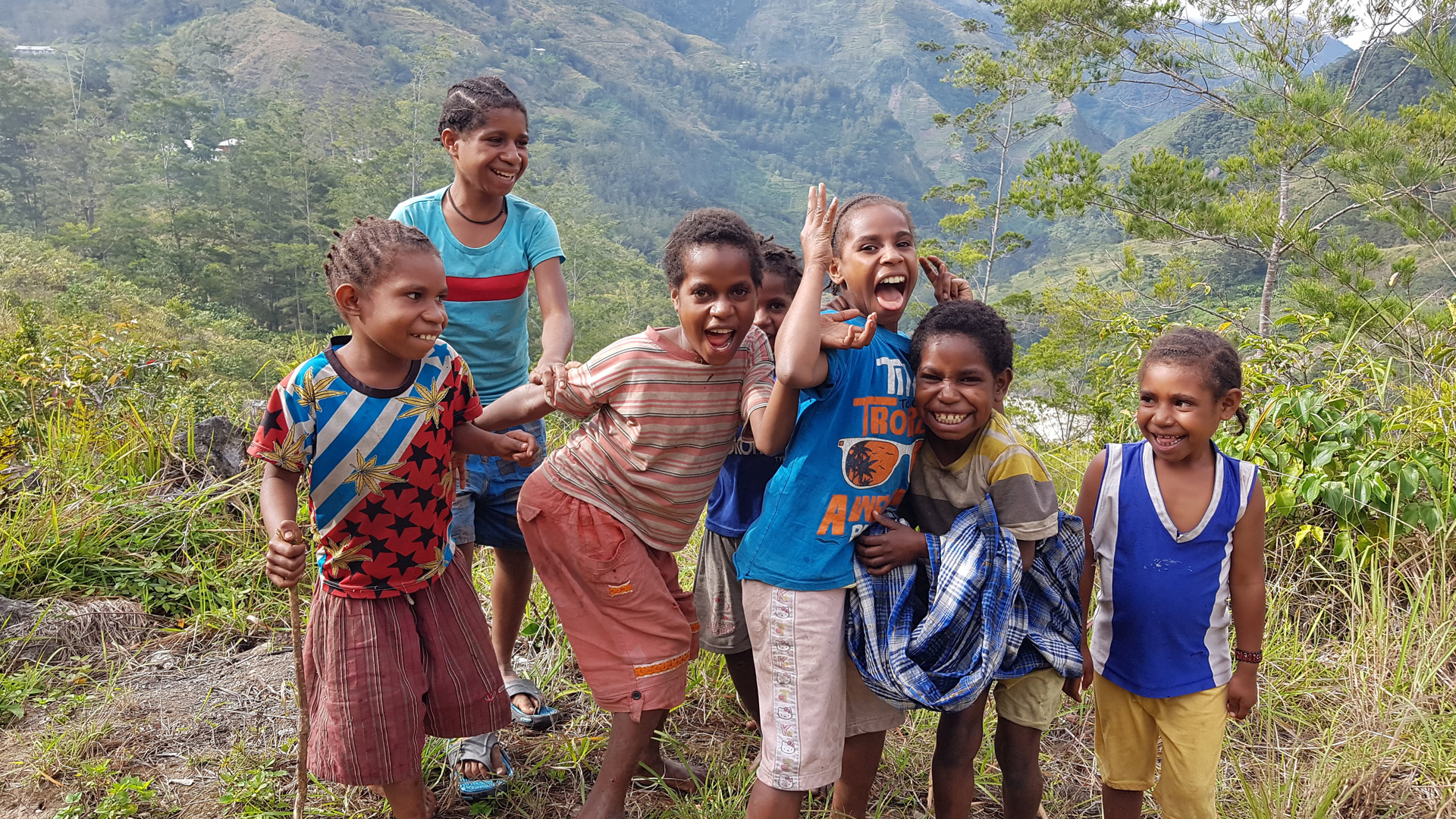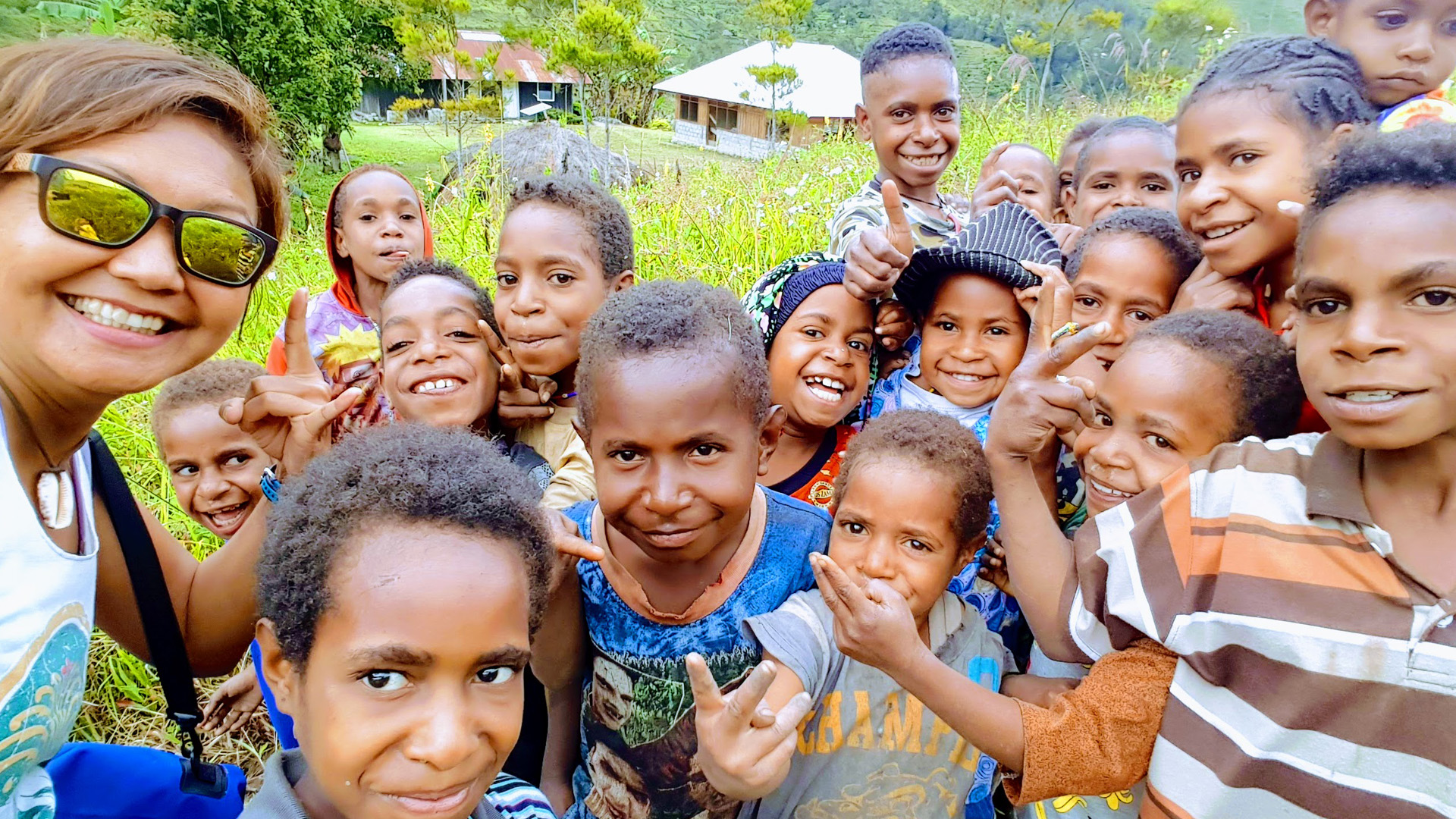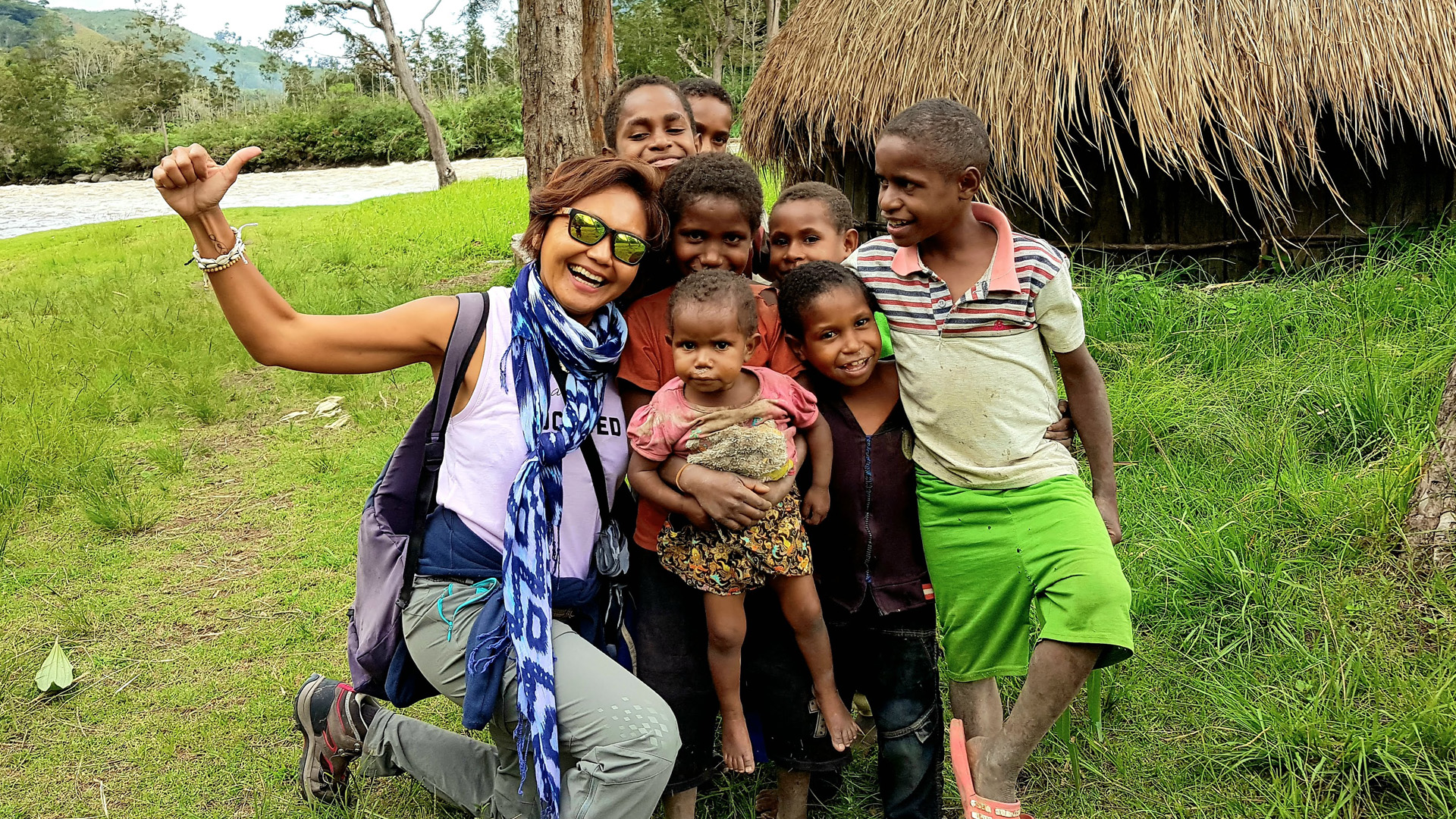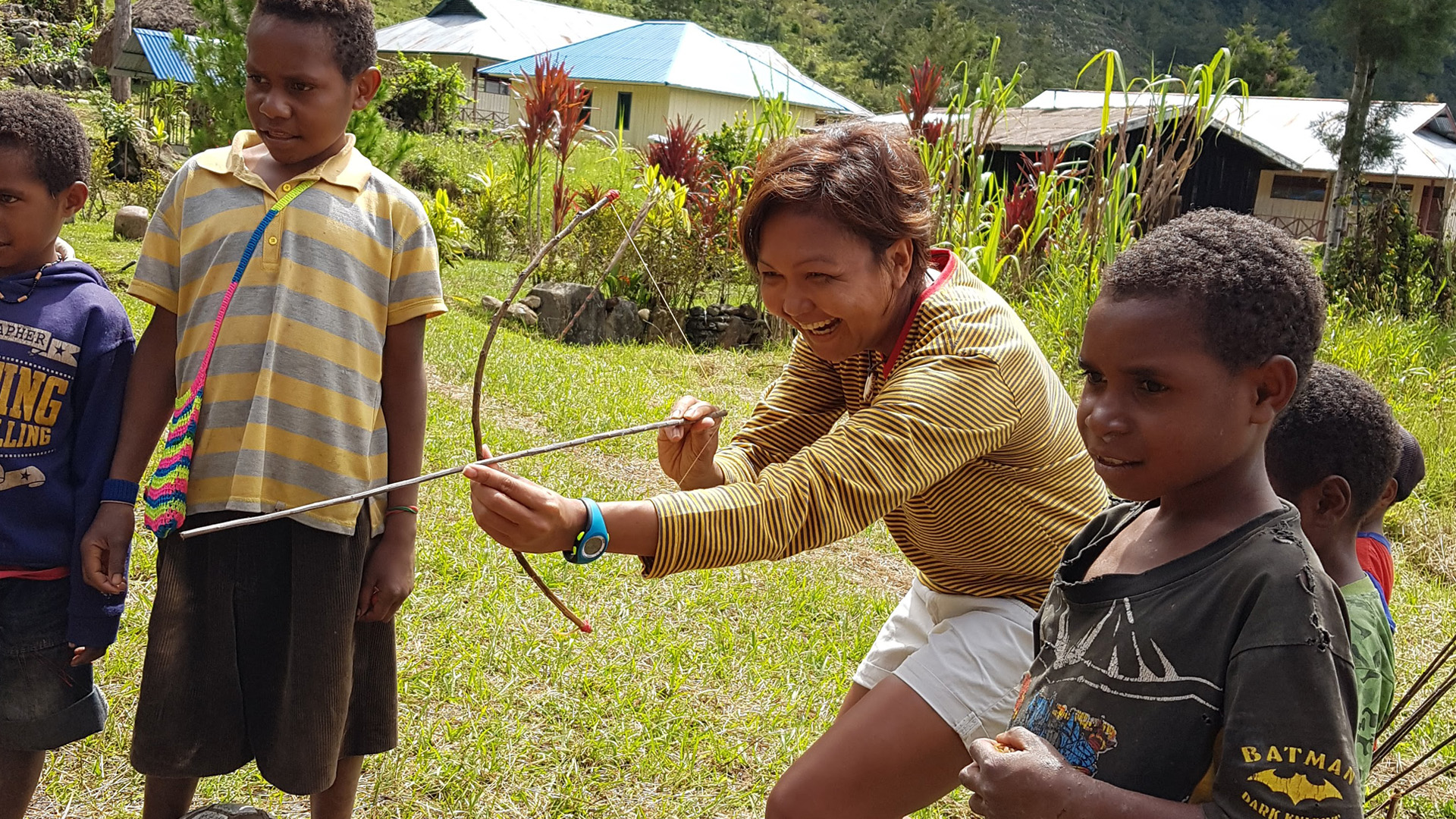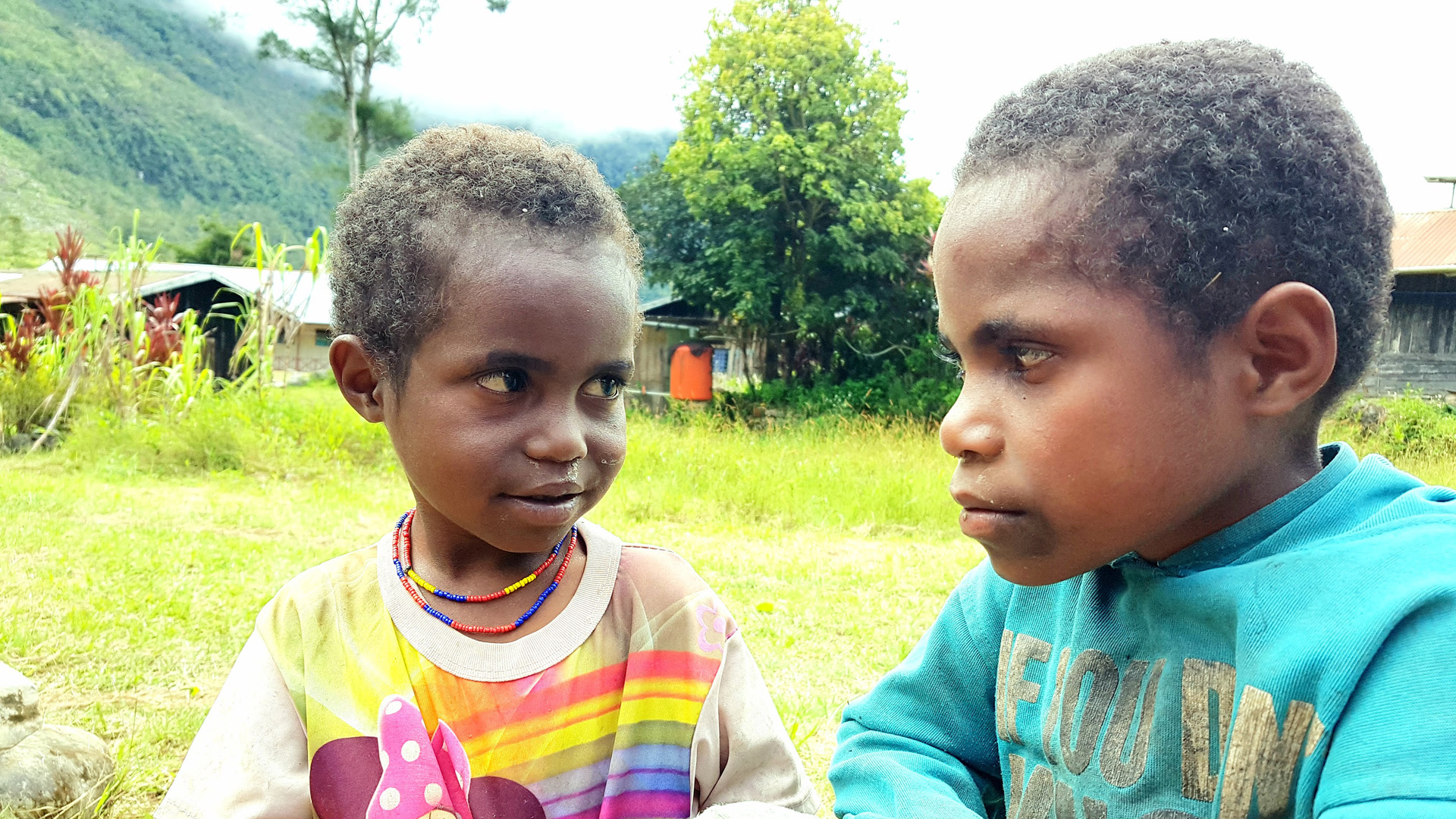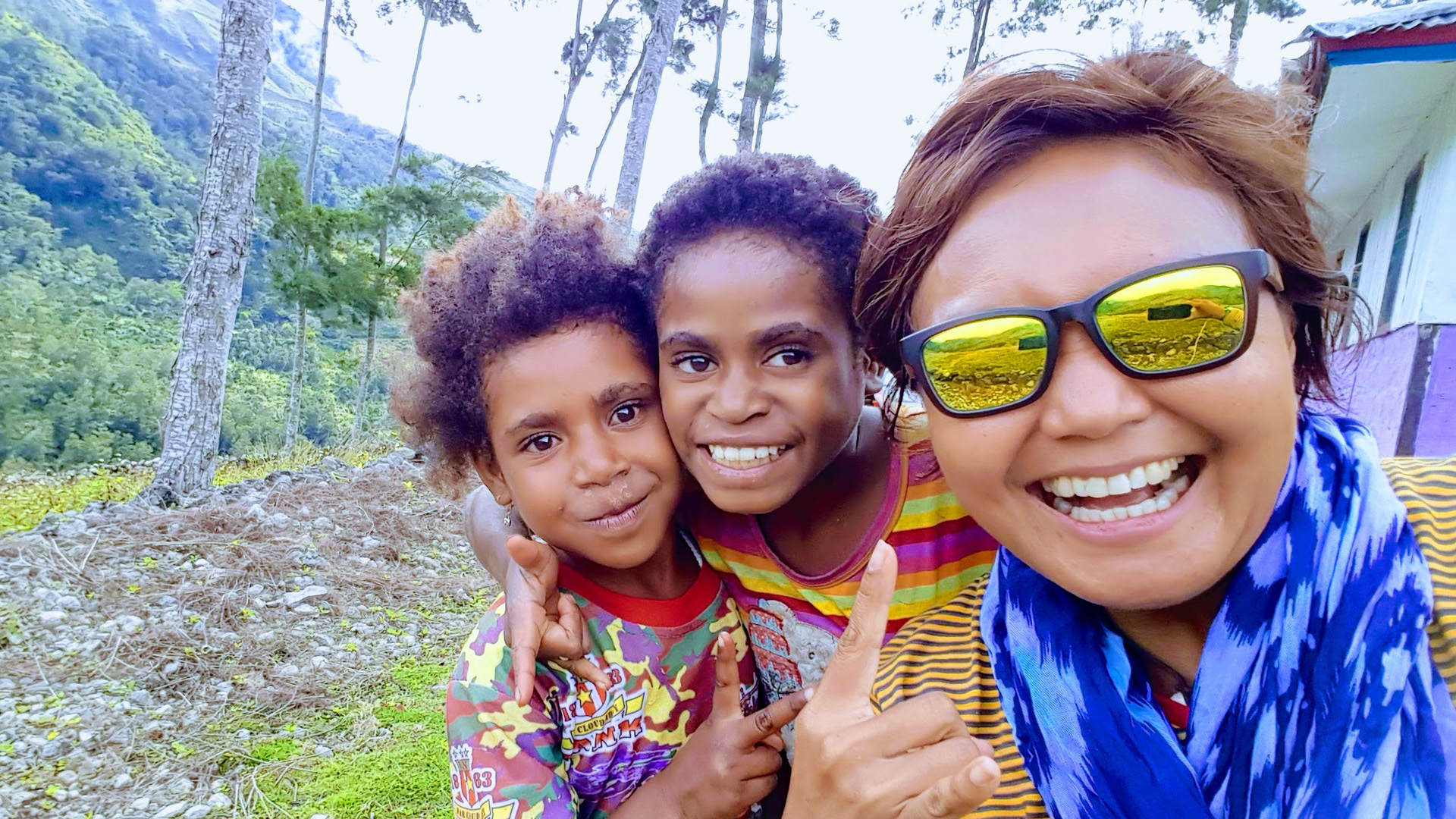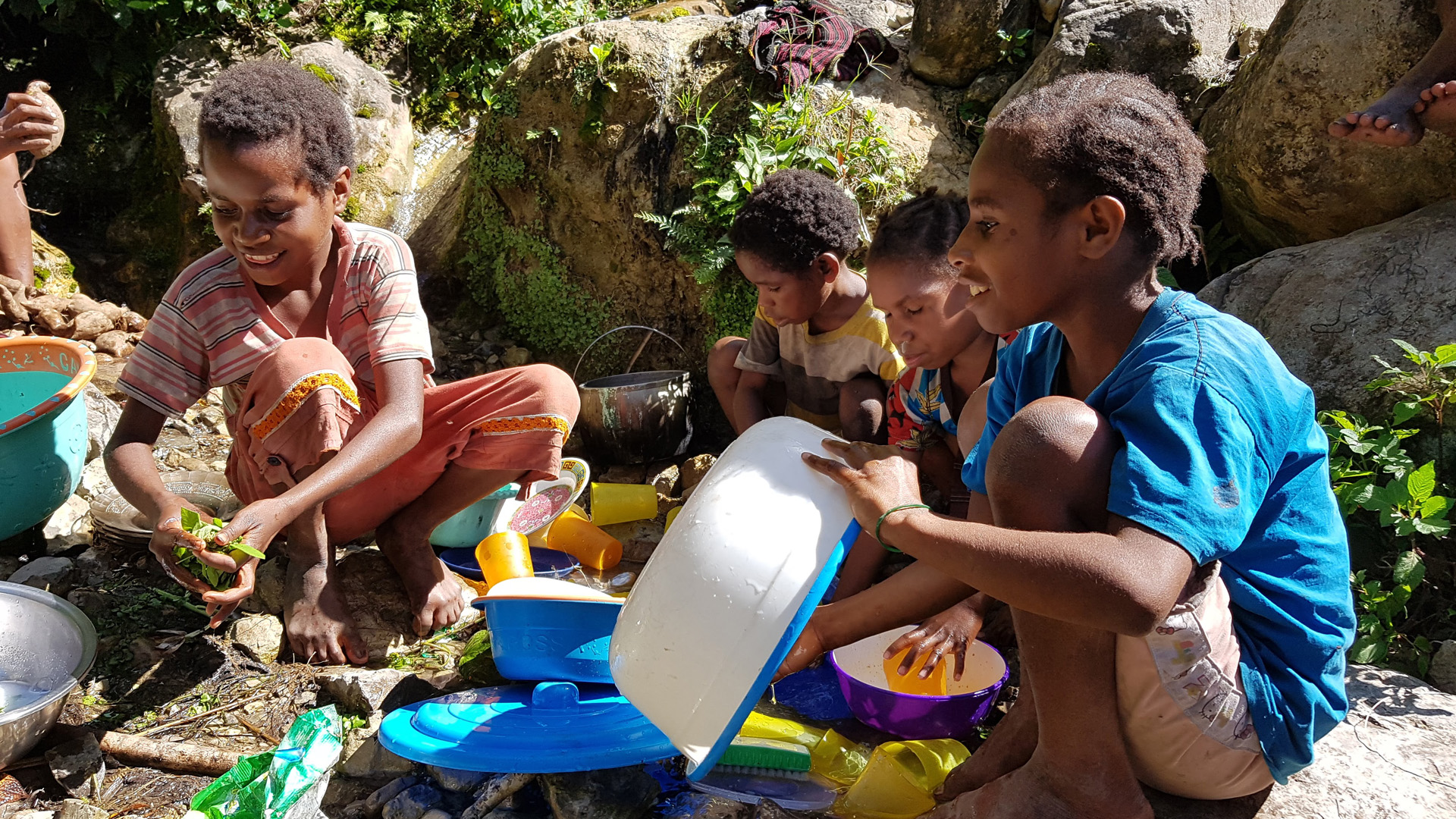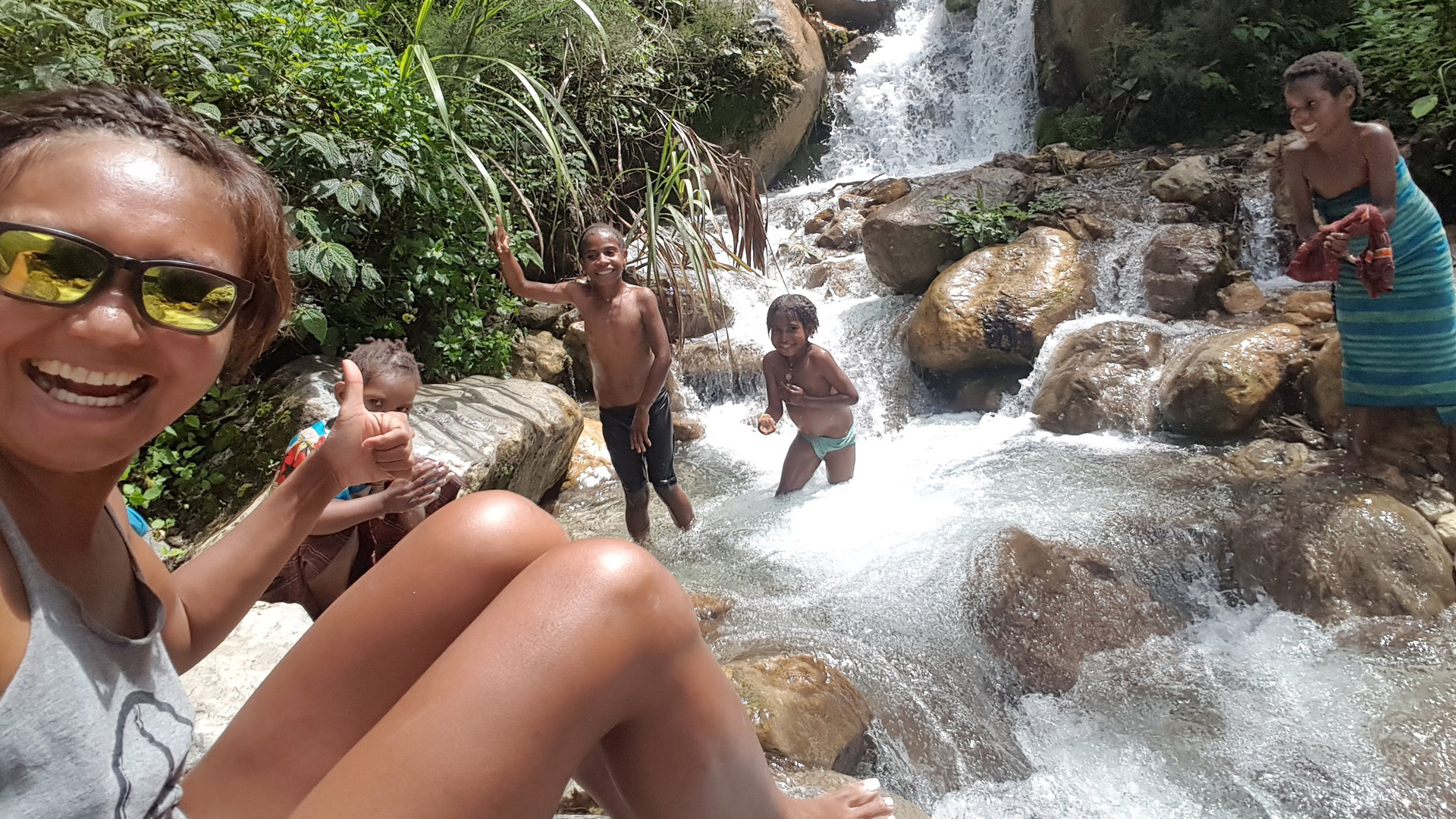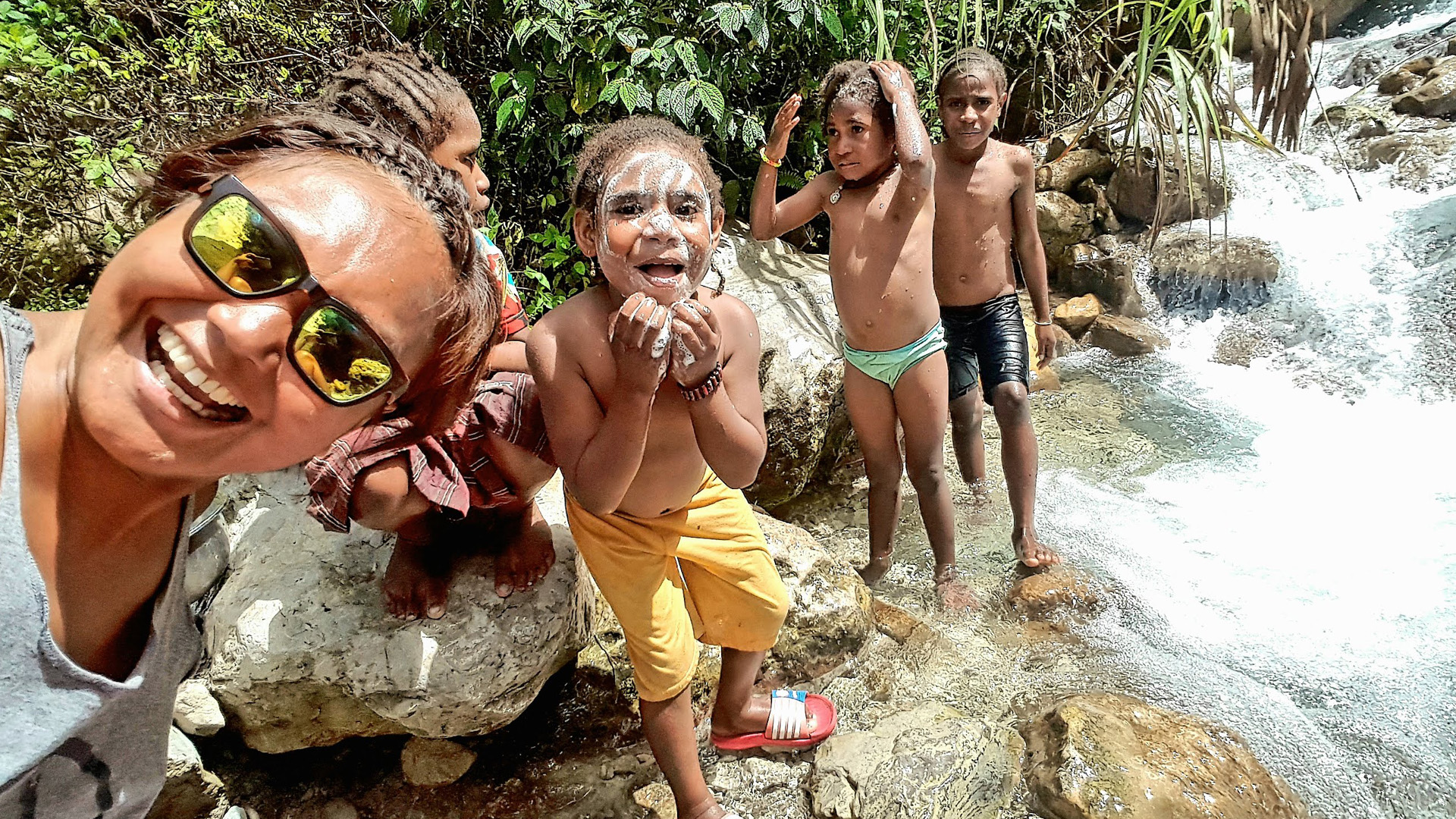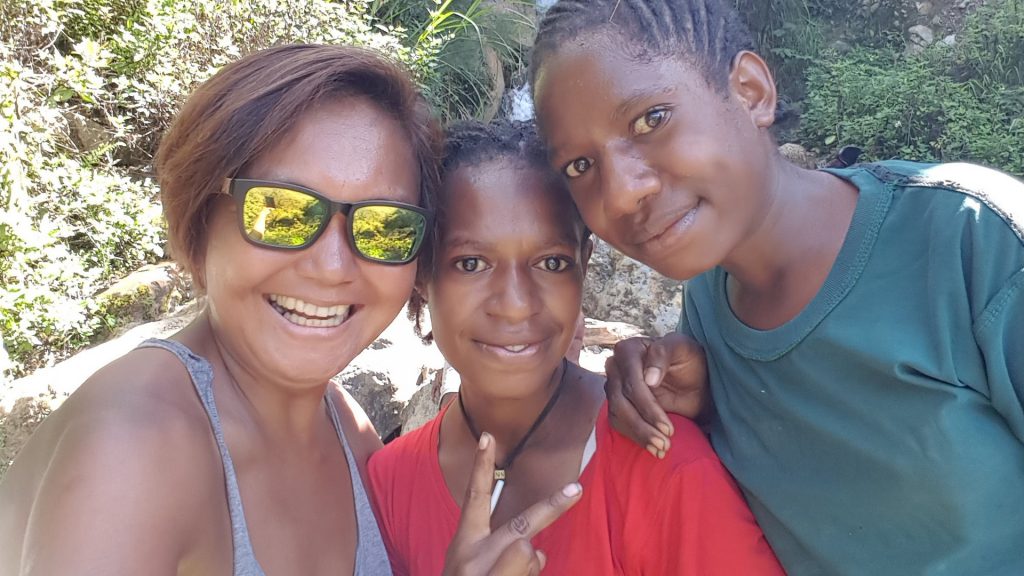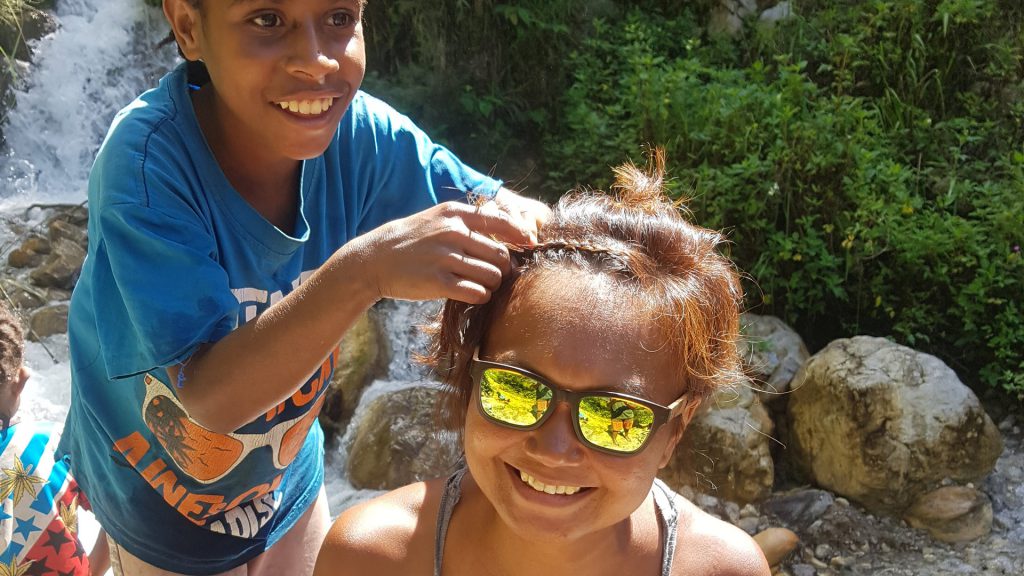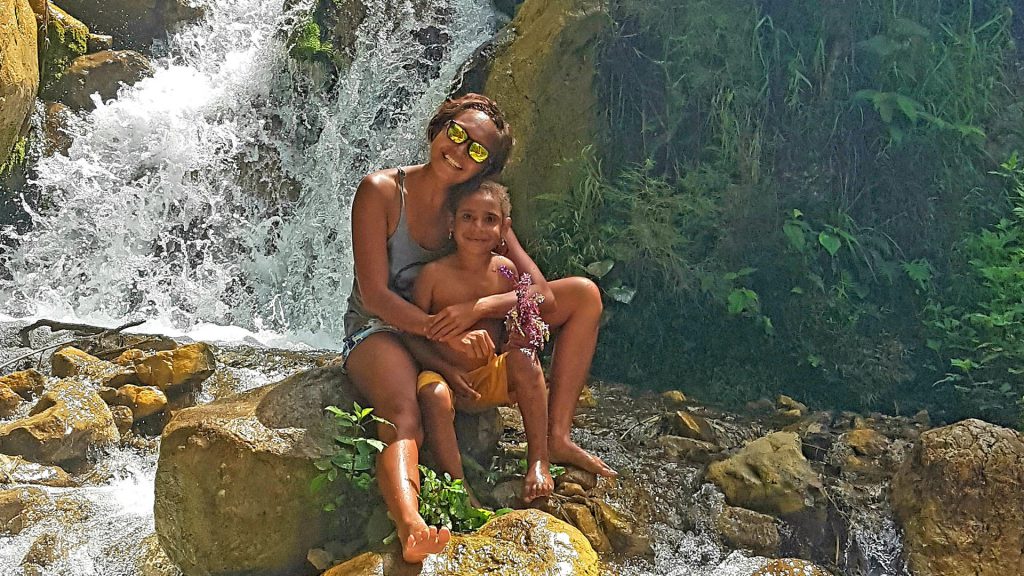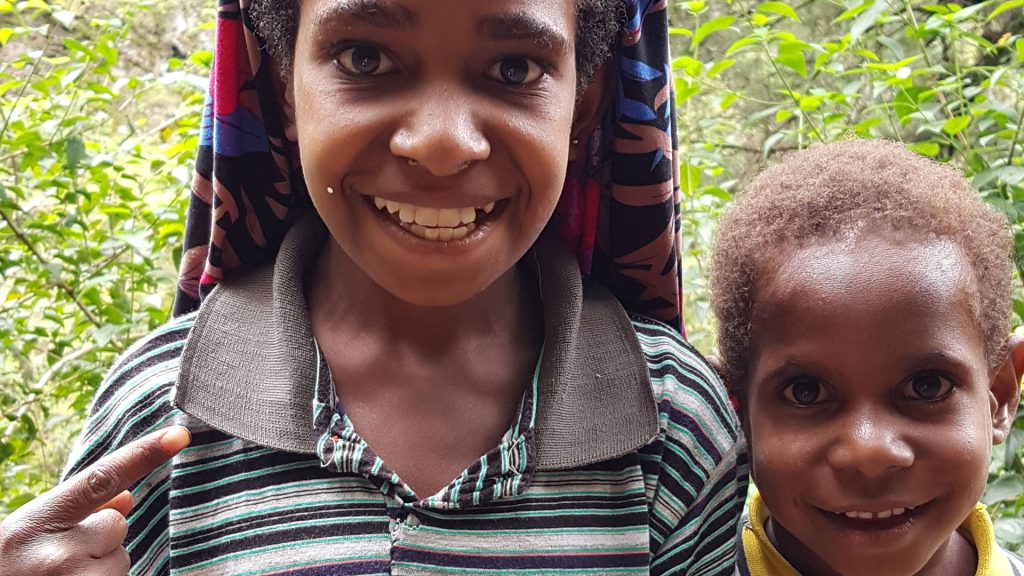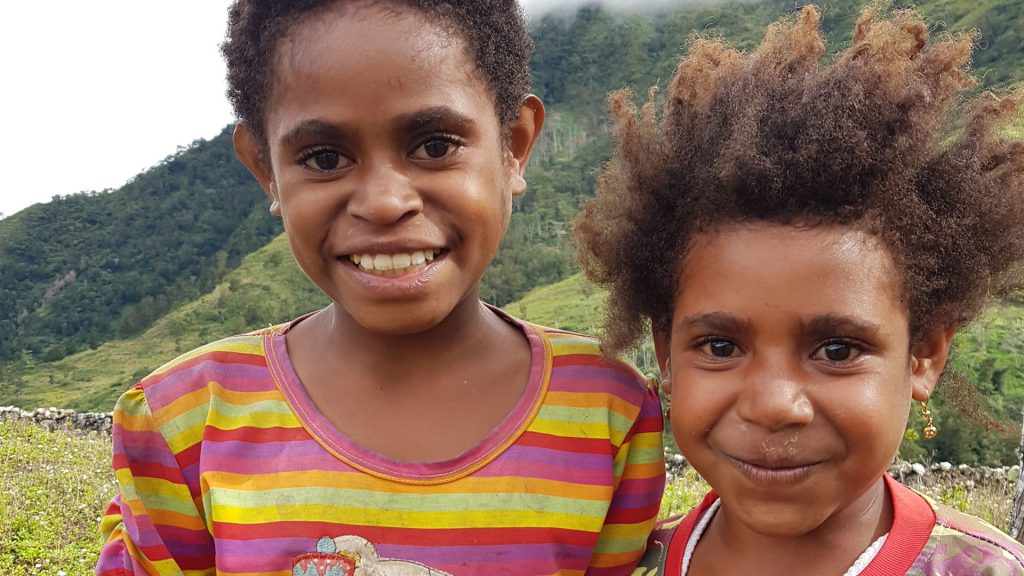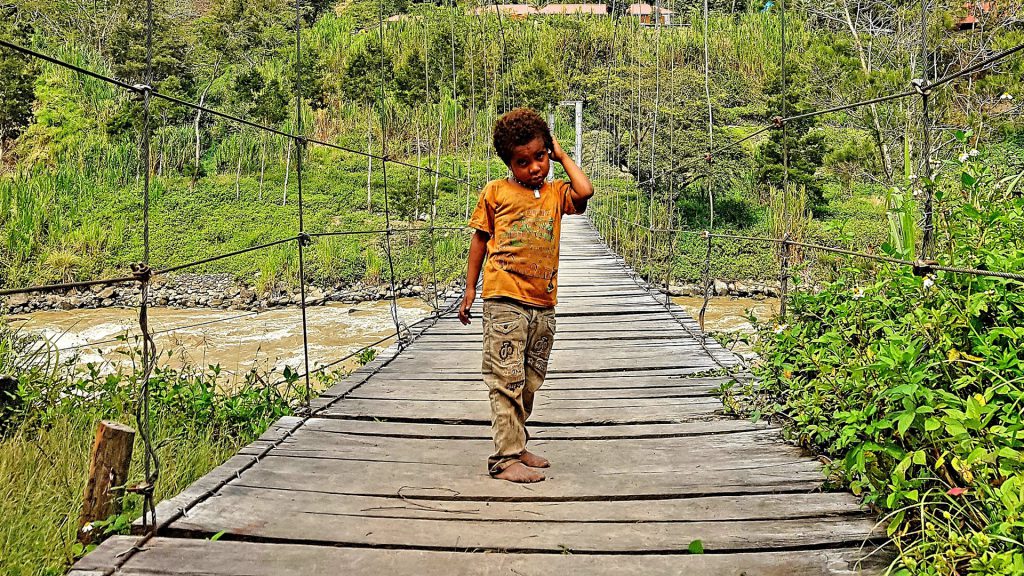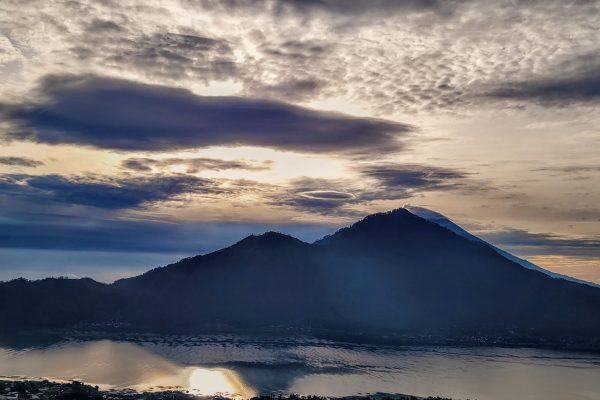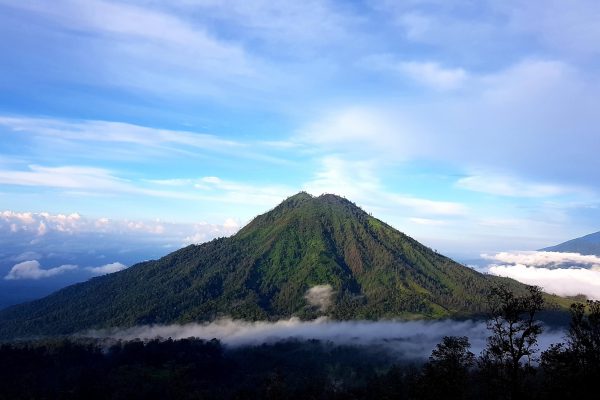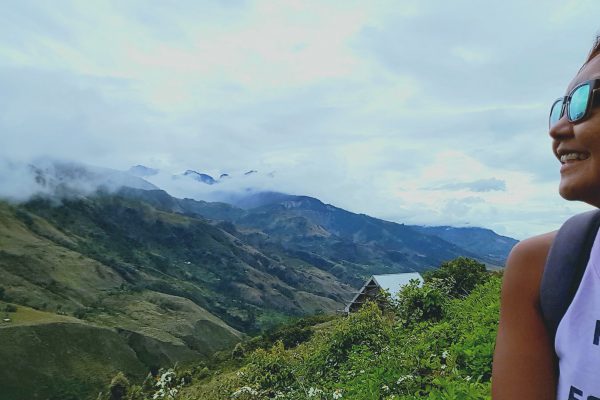How old are you? While playing Uno, I asked a young teenage girl who runs a 2 bedrooms guesthouse in Hitugi, a village 6 hours trek from Sogokmo in Baliem Valley. She looked down and said she didn’t know. Then I asked Supenius if he knew his age. He didn’t either. I somehow guessed that Dortea is 15 and Supenius about 12 of age, based on time spent with them in the last 12 hours I was there. Dortea, at a very young age lives on her own, running a guest house, in her own home. Her mum remarried after her father died, lives in a faraway land, a 6 hours trek and a 2 hours flight away. She doesn’t remember the last time she saw her mum.
It is common that birth isn’t registered in this part of Indonesia. Papua, land of some dense and impenetrable jungles, mountain range that requires days to trek to civilisation, no phone connection nor electricity makes a simple requirement as birth registration impossible.
Papua is Indonesia’s poorest province, despite it being Indonesia’s land of gold and boosting billions of dollar worth of timber. Out of approximately 265 million population in Indonesia, 3 million in Papua, 28% of people live below the poverty line and with some of the worst infant mortality and literacy rates in Asia. Sweet potato is their staple diet. They ate them 5 times a day. Rice and instant noodles are luxury treats. Sweet potato leaves, cabbage and yam are three common vegetables eaten daily. No source of good protein or iron.
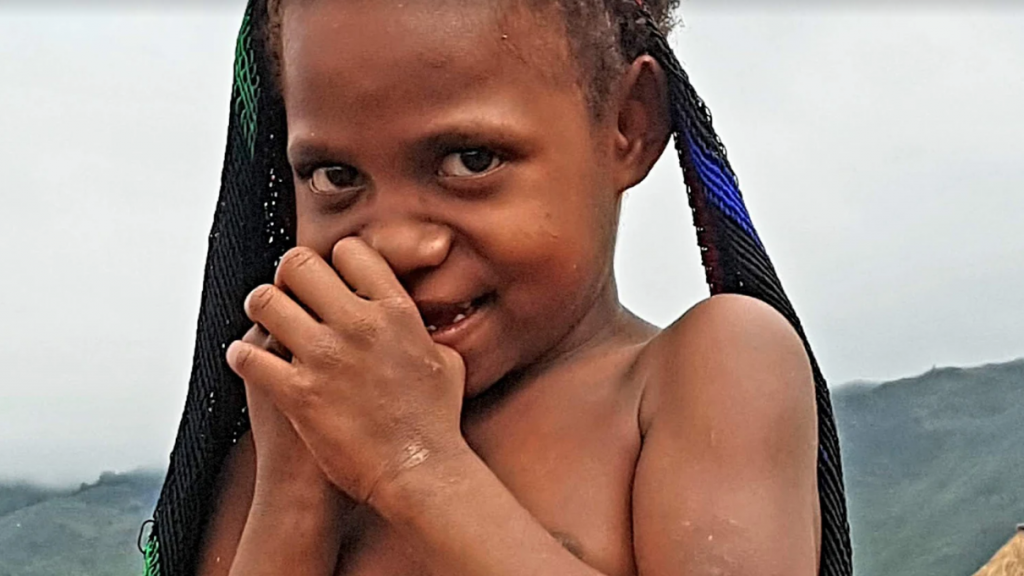
Illiteracy is endemic in Papua. Among the whole population, over 40 percent of its people couldn’t read and write. This number spikes to a staggering 92 percent in some highland districts.
I spent my days in the villages in Baliem Valley teaching the local children very basic English and to count. We had lots of fun too, playing and dancing to some rock music on my phone. It took them a while to learn to count to 10. Their common ways of counting was One, Two, Tree, Four, FUCK, SICK (I’M NOT KIDDING!!), SEBEN, they struggled when it comes to EIGHT and NINE but most knew TEN. I once asked the guy who took me trekking how old he is. He said 9! I smiled at him and asked if he’s 19 instead, he had to pause and think, then corrected that he’s 19! I gathered that the villagers I have communicated with in Papua do not have an understanding about basic numbers nor do they know the concept of time. We spent 2 hours trekking, me teaching him counting to 100. He really struggled. He said he went to school since he was 10 but the teachers are always absent. It is indeed true that the teachers in remote areas are known to be regularly absent. They work without supervision. No one monitors their progress. They are their own boss.
There are many reasons why literacy rates remain stubbornly low in this area. The first challenge is the geographical factors. The highlands in Papua are difficult to reach except by using airplanes, followed by hours if not days of trekking. This also range from uncooperative parents who don’t send their children to school because they don’t understand the value; to very minimal resources; to limited support for teachers; to teachers and principals who simply don’t come to work. School fee costs IDR200,000 per term for a 15 years old pupil in Baliem Valley. That is approximately USD$15, which is a lot of money for most.
It is utterly sad indeed to know that the children in Papua are deprived from education, a fundamental right for all children. I asked several of them about their dreams and if they’ve ever thought about what it’s like outside their world. None wanted to leave their village. Well they don’t know the difference. They don’t have a clue what the big wide world has to offer.
I sometimes showed the villagers photos and videos on my photos. The children usually are fascinated by the world outside their villages. Their eyes widened seeing photos of aeroplane taking off, a machine cleaning the floor at Singapore airport, a swimming pool they thought a manmade river and high-rise buildings that blew their mind. I showed them videos of my talented children on the drums- They asked if my kids are famous! LOL! I told them how much I love travelling, I shared with them my travel photos and my travel tales. I told them that my time spent with them in their village is very special to me and I’m envious of their beautiful surroundings.
I’ve had the best time of my life, living the Papuan way this time. Spending my time in the valleys without any running water nor electricity, 2 very basic essential has taught me a lot of things in life. Totally disconnected from the rest, living without phone connection was a total bliss. Having to trek 20 minutes for a cold shower in the waterfall wasn’t a hardship. Washing my clothes and helping the locals wash their vegetables in the river was fun. Getting my hair done by 10 years old kids with views to die for was very memorable. Watching them laughing at my silly acts, us singing and dancing our heart out, teaching them English and me learning Papuan are such precious moments I shall never forget. Learning to knit noken (Papuan bag strapped on forehead used to carry goods) was tough. I had teary eyes just thinking about it all….
This is the reason I travel the way I do. This is the reason I do it solo too. I travel at my own pace, totally out of my comfort zone; I fit in the local way of life, to have a better understanding of the local’s culture, their norm and this regularly reminded me to be grateful to the life I have. This is a good soul fix for me, and to fulfil my crave for adventure.
I hope for the best for the children in Papua. I wish something drastic will be change to improve their education system. Literacy is a fundamental right for children. They deserve to know more than what they have in their surroundings.
Travel with your heart and it’ll take you to places you’ve never been before….
Here are some photos of my precious times with my little angels of Baliem Valley ♥️♥️♥️ I miss them terribly…..
